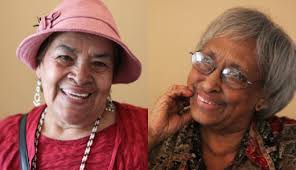Arthritis - Benefits of Walking
Source: www.arthritistoday.org/
Date: December 10, 2014
So, lowered blood pressure, less joint pressure, a decreased risk of stroke and an opportunity to keep excess weight at bay not enough to get you walking? How about a better night’s sleep, decreased stress, a better memory and less depression?
While walking boasts a number of physical benefits, it also can give the brain mental boosts as well. Some examples of the emotional benefits of exercise:
Walking slows mental decline. A study of 6,000 women, ages 65 and older, performed by researchers at the University of California, San Francisco, found that age-related memory decline was lower in those who walked more. The women walking 2.5 miles per day had a 17-percent decline in memory, as opposed to a 25-percent decline in women who walked less than a half-mile per week.
Walking lowers Alzheimer’s risk. A study from the University of Virginia Health System in Charlottesville found that men between the ages of 71 and 93 who walked more than a quarter of a mile per day had half the incidence of dementia and Alzheimer’s disease, compared to those who walked less.
Walking improves sleep. A study from the Fred Hutchinson Cancer Research Center in Seattle found that women, ages 50 to 75, who took one-hour morning walks, were more likely to relieve insomnia than women who didn’t walk.
Walking lightens mood. Research reported in the British Journal of Sports Medicine found that walking 30 minutes a day boosted the moods in depressed patients faster than antidepressants. Why? Walking releases natural painkilling endorphins to the body – one of the emotional benefits of exercise. A California State University, Long Beach, study showed that the more steps people took during the day, the better their moods were.
Besides these mental benefits of walking, it also serves as a form of meditation. An outdoor stroll can help erase a bad day as you instead start to focus on the surrounding environment. Carolyn S. Kortge began walking in the ’80s and entered her first race-walking competition in the ’90s, eventually becoming a USA Track and Field Association bronze and silver race-walking medalist. Carolyn, who lives in Eugene, Ore., was diagnosed with osteoarthritis in 2004, but continues to keep her mind off the pain in her knees and hands by walking daily.
“When you’re walking there’s an opportunity for meditative intent. You can be silent and focus on creating a connection with your body through prayer, breathing or a phrase,” she says. “It’s a wonderful way of changing your focus.”
top
|



